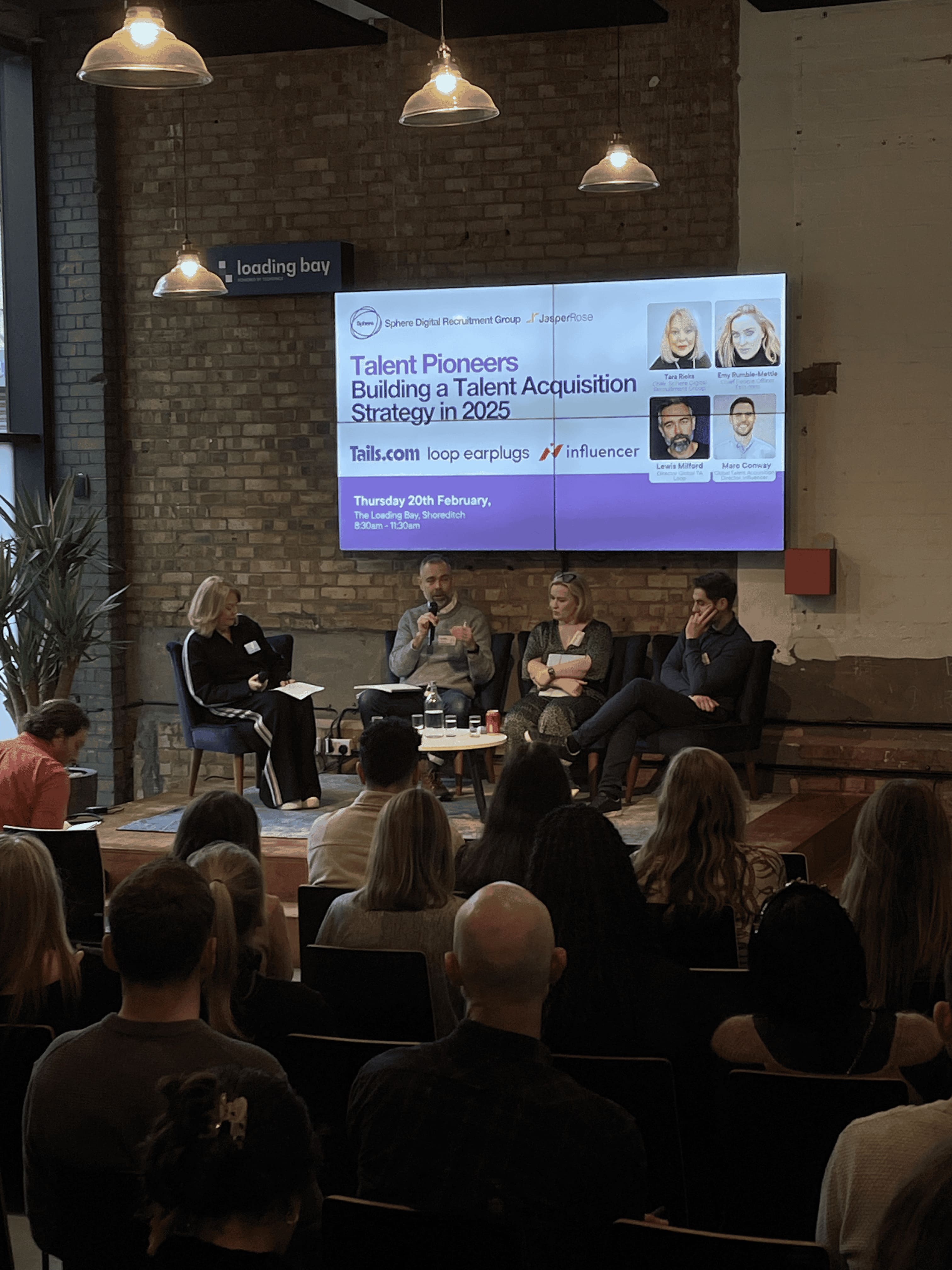
The key to effective marketing and how to nurture homegrown talent; insights from Cristy Garcia at impact.com
20 Jun, 20235 minsFrom successfully hitting benchmarks to nurturing internal collaboration and developing the ...

From successfully hitting benchmarks to nurturing internal collaboration and developing the perfect workplace culture, B2B businesses have a lot to juggle. And as they continue to face uncertain economic times, hitting home on each of these has become more important than ever.
In our latest Life In Digital episode, we spoke to Cristy Garcia, Chief Marketing Officer at impact.com, who oversees B2B marketing operations across the board.
Having graduated in advertising and creative writing, Cristy has a passion for instilling as much creativity as possible into her data-driven role.
Here, Cristy unveils key insights on successful marketing practices, how to build strong homegrown talent from the ground up, and how to pivot as a business during periods of instability.
Building a respectful internal culture
Cristy doesn’t believe in hiring externally above a certain level, if she can help it. Instead, she’d much rather develop the team she already has at her fingertips.
“It’s very rare that I’ll hire a director [from outside]. I always try to hire someone internally because I think it’s the best way to help the team grow and enhance their skill sets. I hardly look outside unless I absolutely have to.”
Cristy also believes this approach has helped impact.com strengthen its company culture, helping team members feel more confident in their ability and reassuring them that the leadership trusts and values them.
Successful marketing starts with data
It’s no surprise that data is the secret sauce that should hold marketing departments together - but how does this work in reality?
According to Cristy, analysing and sharing data insights is important because the wider team needs full transparency into what’s working and what’s not, and she recommends weekly reporting at the very least. But just as integral is experimenting with different channels and refining your marketing mix, trying new things, and taking a test-and-learn approach.
“Marketing teams need to be running different types of reports to see different data cuts - it’s all about looking at that data in different ways.”
To achieve this, a lot of companies use a certain type of attribution model, and at impact.com, this is no different.
“We use a last-touch attribution model, but we also make sure we share information on first-click with the team, to get a more holistic picture. The addition of that information is super-important and gives us the data to be able to explain why we do what we do or why we’re making certain choices as a department.”
Agile budgeting
When it comes to allocating budgets, Cristy prefers to break it down into global vs regional allocations, as well as marketing vs sales allocations.
“By breaking it down, you’re able to get insights into which countries are performing better than others, as well as which channels are driving the most positive change.”
Cristy also believes this segment-by-segment budgeting enables teams to pivot when a problem does arise.
“If we see that something isn’t working, we’ll flag it immediately and try to fix it. And if we can’t fix it there and then, we’ll stop investing in that region or switch channels.”
Investing to push through instability
When it comes to periods of economic and political instability, companies often find it difficult to see through to the other side and the knee-jerk reaction is to curb investment. But sticking to the plan and continuing to take action is what will set your business apart from competitors.
“I always advise clients to lean into those periods - it’s a huge competitive advantage. There have been countless studies showing the value of advertising and marketing through poor macroeconomic conditions.”
Cristy continues: “You also want to build trust with your team. Stay objective and show them the wins, but also show them the losses. When you’re only sharing positive information, it’s difficult for people to believe in you”.
Creating space for fresh perspectives
One problem Cristy has seen within workplace culture is the echo chamber - having a room full of people who always bring forward the same talking points and perspectives.
“Trade-ins perform far better than the echo chamber, so making sure you have diversity will go a long way in bringing in fresh perspectives.”
Leverage partnerships for marketing success
If Cristy has one piece of advice for crushing B2B marketing, it would be establishing partnerships - it’s cost-effective to the core.
“Marketing leads tend to be under-resourced - we don’t always have the budget, so we need to be able to do more with less. And that’s exactly what partnerships enable. You can leverage affiliates, influencers, media, and other extensions of your team who can drive people to take action and increase revenue, and it’s all operated via a cost-per-action (CPA) model.”
You can find the full episode and more on our Life in Digital podcast. To find out more about how to leverage automated partnerships that drive growth, visit impact.com.



